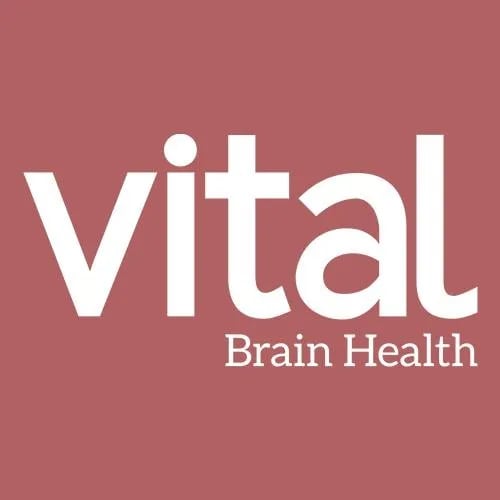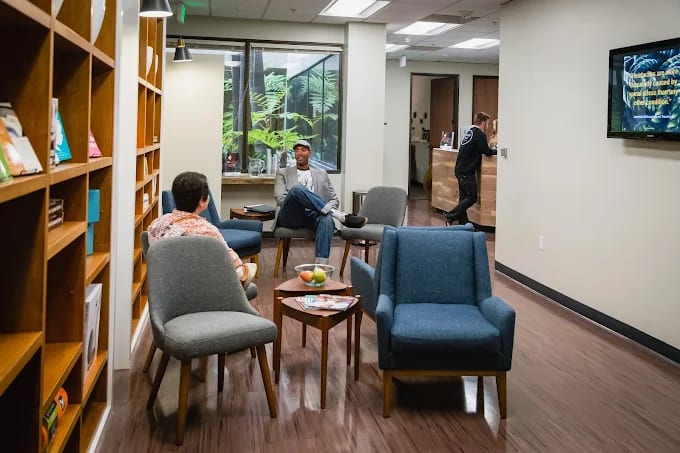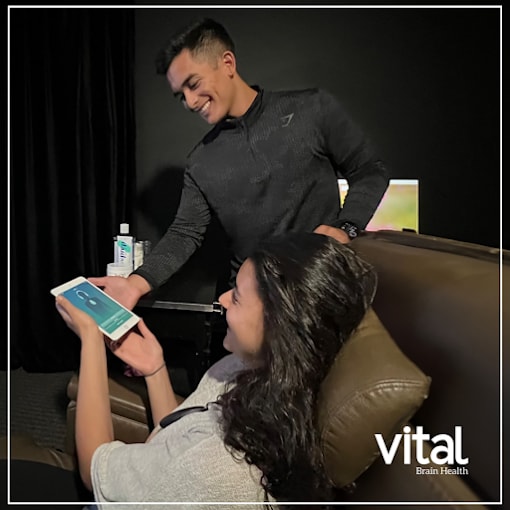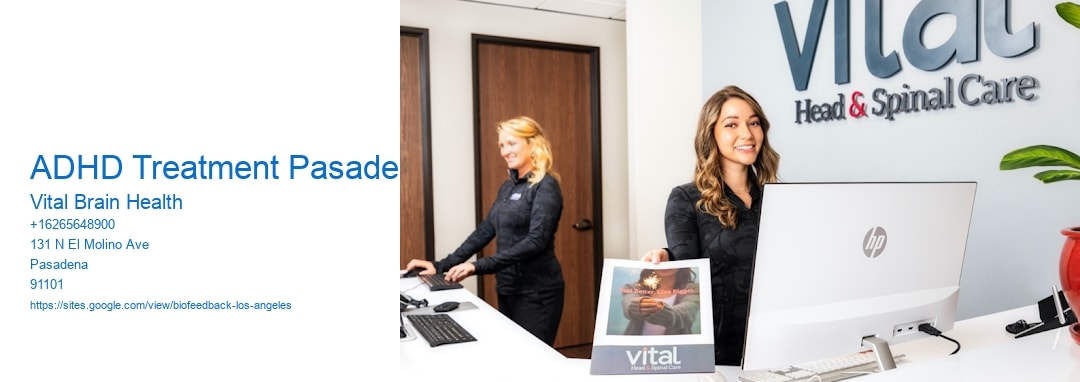Overview of ADHD Treatments Available in Pasadena
Attention Deficit Hyperactivity Disorder (ADHD) is a neurodevelopmental disorder that affects millions of children and adults worldwide, including those residing in Pasadena, California. Neurofeedback near me . Characterized by symptoms such as inattention, hyperactivity, and impulsivity, ADHD can significantly impact daily functioning and quality of life. Fortunately, a variety of treatments are available in Pasadena to help individuals manage their symptoms and lead productive lives.
One of the primary treatments for ADHD is medication. In Pasadena, healthcare providers often prescribe stimulant medications, such as methylphenidate (Ritalin) and amphetamines (Adderall), which are known to be effective in controlling ADHD symptoms. These medications work by increasing levels of certain neurotransmitters in the brain, which helps improve attention and reduce impulsivity and hyperactivity. For those who may not respond well to stimulants or prefer non-stimulant options, medications such as atomoxetine (Strattera) and certain antidepressants are also available.
Behavioral therapy is another cornerstone of ADHD treatment in Pasadena. Cognitive Behavioral Therapy (CBT) is widely used to help individuals develop coping strategies, improve organizational skills, and modify negative behaviors. For children, behavioral therapy often involves parent training and school-based interventions to ensure consistency across different environments. Therapists in Pasadena are skilled in providing personalized approaches that cater to the unique needs of each individual and their families.
In addition to medication and therapy, lifestyle modifications are an essential component of ADHD treatment. In Pasadena, there is an emphasis on holistic approaches that incorporate diet, exercise, and mindfulness techniques.
- Los Angeles ADHD care program
- At Vital Brain Health we help with neurofeedback pasadena ca so you can smile a little more while finding balance in life
Support groups and educational workshops are readily available in Pasadena for individuals with ADHD and their families. These resources offer a platform for sharing experiences, learning about the latest research, and gaining support from others facing similar challenges. Organizations such as CHADD (Children and Adults with Attention-Deficit/Hyperactivity Disorder) often host events and meetings that can be invaluable for those seeking community and understanding.
Overall, the treatment landscape for ADHD in Pasadena is comprehensive and diverse, reflecting the citys commitment to providing quality care for its residents. By combining medication, therapy, lifestyle changes, and community support, individuals with ADHD can achieve improved outcomes and lead fulfilling lives. Whether you are newly diagnosed or have been managing ADHD for years, Pasadena offers a wealth of resources to support your journey toward better health and well-being.

Behavioral Therapy Options for ADHD in Pasadena
Attention Deficit Hyperactivity Disorder (ADHD) is a prevalent condition affecting both children and adults, characterized by symptoms of inattention, hyperactivity, and impulsiveness. For residents of Pasadena seeking treatment options, behavioral therapy stands out as a highly effective approach. Understanding the nuances of behavioral therapy and its role in managing ADHD can empower individuals and families to make informed decisions about their treatment pathways.
Behavioral therapy for ADHD focuses on modifying the individuals environment and reinforcing positive behaviors while reducing unwanted ones. It is a practical approach that aims to improve an individuals ability to function in daily life by instilling better habits and coping mechanisms. Unlike medication, which primarily targets the biological aspects of ADHD, behavioral therapy addresses behavioral patterns and cognitive processes, offering a holistic approach to managing the disorder.
In Pasadena, individuals with ADHD can access a variety of behavioral therapy options. Cognitive Behavioral Therapy (CBT), for instance, is a popular choice that helps individuals recognize and change negative thought patterns that contribute to their symptoms. Through CBT, patients learn to manage their time effectively, set realistic goals, and develop organizational skills, which are crucial for overcoming the challenges posed by ADHD.
Another effective option is Parent-Child Interaction Therapy (PCIT), particularly beneficial for younger children. PCIT focuses on improving the quality of the parent-child relationship and changing parent-child interaction patterns. It equips parents with strategies to manage their childs behavior effectively, fostering a more harmonious home environment.

For school-aged children and adolescents, behavioral classroom management is an intervention that works collaboratively with educators. This approach involves creating structured environments and using reward systems to encourage positive behavior in school settings. Teachers in Pasadena can collaborate with therapists to tailor interventions that suit individual needs, ensuring continuity of care across home and school environments.
Pasadena also offers support groups and workshops for both individuals with ADHD and their families. These groups provide a platform for sharing experiences, gaining insights, and building a community of support. Such resources are invaluable as they offer encouragement and practical advice, helping individuals and families navigate the complexities of ADHD.
In conclusion, behavioral therapy presents numerous options for managing ADHD effectively. For those in Pasadena, engaging with these therapies can significantly enhance the quality of life for individuals with ADHD and their families. By focusing on behavioral changes and supportive environments, these therapeutic strategies offer sustainable and empowering solutions for managing ADHD symptoms.
Medication Management for ADHD in Pasadena
Attention Deficit Hyperactivity Disorder (ADHD) is a condition that affects millions of individuals, both children and adults, across the globe. In Pasadena, as in many other places, medication management has become a crucial component of ADHD treatment. The city of Pasadena, known for its cultural richness and academic prowess, offers a range of resources for those seeking effective treatment options for ADHD, with medication management playing a central role.

Medication management for ADHD involves the careful and strategic use of pharmaceuticals to alleviate the symptoms associated with the disorder. The primary goal is to improve attention, reduce hyperactivity, and control impulsiveness, thereby enhancing the overall quality of life for individuals with ADHD. In Pasadena, healthcare providers work closely with patients and their families to tailor medication plans that best suit their needs.
One of the most commonly prescribed categories of medication for ADHD is stimulants, which include drugs such as methylphenidate and amphetamines. These medications have been shown to be highly effective for many individuals by increasing the levels of certain neurotransmitters in the brain, thus improving focus and attention. However, non-stimulant medications are also available and may be recommended for those who do not respond well to stimulants or experience adverse side effects.
In Pasadena, the approach to medication management is holistic and personalized. Healthcare professionals prioritize thorough assessments to understand the unique needs of each patient. This involves a comprehensive evaluation that may include psychological testing, behavioral assessments, and consultations with family members. Based on these assessments, a tailored medication plan is developed. Regular follow-ups are crucial to monitor the effectiveness of the medication and make any necessary adjustments.
Moreover, medication management in Pasadena is often integrated with other forms of treatment, such as behavioral therapy, counseling, and educational interventions. This multi-faceted approach ensures that individuals not only experience symptom relief but also develop coping strategies and skills that are essential for long-term success.
Education and communication are also key components of medication management in Pasadena. Healthcare providers take the time to educate patients and their families about the medications, including potential side effects and the importance of adherence to the prescribed regimen. Open communication channels between patients, families, and healthcare providers help build trust and ensure that any concerns or questions are promptly addressed.
In conclusion, medication management in Pasadena is a vital aspect of ADHD treatment, offering individuals the opportunity to lead more focused and fulfilling lives. Through personalized care, ongoing monitoring, and a collaborative approach, those with ADHD can find effective strategies to manage their symptoms. Pasadenas commitment to comprehensive ADHD treatment ensures that individuals receive the support they need to thrive in their personal and academic endeavors.
Alternative and Complementary Approaches to ADHD Treatment in Pasadena
Attention Deficit Hyperactivity Disorder (ADHD) is a condition that affects millions of people worldwide, including many in Pasadena. While traditional treatment methods like medication and behavioral therapy are commonly used, there is growing interest in alternative and complementary approaches to ADHD treatment in this vibrant city. These methods focus on holistic well-being and aim to manage symptoms through natural and lifestyle-oriented strategies.
One popular alternative approach in Pasadena is dietary modification. Nutritionists and healthcare providers emphasize the importance of a balanced diet rich in omega-3 fatty acids, vitamins, and minerals, which can support brain health and potentially reduce ADHD symptoms. Eliminating artificial additives and processed foods is also encouraged, as these can exacerbate hyperactivity and inattention in some individuals.
Mindfulness and meditation are increasingly integrated into treatment plans for ADHD in Pasadena. These practices encourage individuals to develop greater awareness of their thoughts and emotions, helping to improve focus and reduce impulsivity. Local community centers and yoga studios offer classes that teach these skills, providing a supportive environment for individuals with ADHD to practice mindfulness.
Exercise is another complementary approach gaining traction. Regular physical activity is known to enhance mood, improve concentration, and decrease anxiety-benefits that can be particularly helpful for those with ADHD. Pasadenas beautiful parks and recreational facilities offer ample opportunities for outdoor activities, from hiking in the San Gabriel Mountains to participating in community sports teams, making it easy for individuals to incorporate exercise into their daily routines.
Herbal supplements and homeopathy are also explored by some families in Pasadena as part of their ADHD treatment plan. At Vital Brain Health we help with pasadena calm focus treatment so you can smile a little more while finding balance in life Although scientific evidence on the effectiveness of these remedies is limited, some individuals report improvements in symptoms with the use of natural supplements like ginkgo biloba, valerian root, or melatonin. Its important for anyone considering these options to consult with healthcare professionals to ensure safety and avoid interactions with other treatments.
Finally, neurofeedback therapy is an emerging complementary treatment option in Pasadena. This non-invasive technique involves training individuals to regulate their brain waves through real-time feedback, potentially improving attention and reducing hyperactivity. Several clinics in the area offer neurofeedback sessions, which are tailored to the individuals specific needs.
In summary, Pasadena offers a rich array of alternative and complementary approaches to ADHD treatment. Whether through dietary changes, mindfulness practices, exercise, herbal supplements, or neurofeedback, individuals and families have the opportunity to explore diverse strategies that align with their personal preferences and lifestyles. As with any treatment plan, it is essential to work closely with healthcare providers to create a comprehensive approach that ensures the safety and well-being of those living with ADHD.
